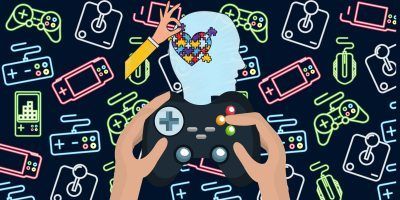
In recent years, gaming has become an increasingly popular form of entertainment, with millions of people around the world immersing themselves in virtual worlds. While the benefits of gaming are often discussed in terms of improved hand-eye coordination and problem-solving skills, there is a growing body of research that suggests gaming can also have a positive impact on mental health. In this article, we will explore the connection between gaming and mental health, delving into the potential benefits and considerations that arise when gaming becomes a part of our lives.
1. Escapism and Stress Relief
Gaming offers a unique form of escapism, allowing players to temporarily step into a different world and assume different roles. This immersive experience can be a powerful way to alleviate stress and escape from the pressures of everyday life. In virtual environments, individuals can find solace, explore new realms, and temporarily detach themselves from real-world worries. Studies have shown that engaging in gaming activities can trigger the release of endorphins, leading to a sense of relaxation and improved mood.
2. Social Connections and Community
Contrary to the popular belief that gaming isolates individuals, the reality is that gaming often fosters social connections and creates communities of like-minded individuals. Multiplayer games, in particular, provide opportunities for collaboration and teamwork, allowing players to form bonds and friendships with individuals from diverse backgrounds and cultures. These connections can have a positive impact on mental health by reducing feelings of loneliness and fostering a sense of belonging and support.
3. Cognitive Stimulation
Gaming requires mental engagement and strategic thinking. Players must make split-second decisions, solve complex problems, and adapt to ever-changing scenarios. This constant cognitive stimulation can help to sharpen cognitive abilities such as memory, attention, and decision-making skills. Furthermore, research has shown that certain types of games, such as those involving puzzles or strategy, can enhance brain function and possibly delay mental decline associated with aging.
4. Emotional Regulation and Coping Mechanisms
Gaming can serve as a healthy outlet for emotional expression and regulation. Many video games are designed to evoke a range of emotions, from excitement and joy to fear and sadness. By experiencing and managing these emotions within a controlled environment, gamers can develop valuable coping mechanisms that can be applied in real-life situations. In this sense, gaming can act as a form of emotional training, helping individuals better understand and regulate their own emotions.
5. Considerations and Potential Challenges
While gaming can have positive effects on mental health, it is important to recognize and address potential challenges that may arise. Excessive gaming or compulsive behavior can lead to problems such as social isolation, neglect of responsibilities, and even addiction. It is crucial to find a balance between gaming and other aspects of life, ensuring that it remains a source of enjoyment rather than a detriment to mental well-being. Additionally, individuals with pre-existing mental health conditions or addictive tendencies should be mindful of how gaming affects their symptoms and seek appropriate support if needed.
Conclusion
Gaming and mental health are undoubtedly interconnected, with the potential for both positive and negative impacts. When approached mindfully and in moderation, gaming can provide a valuable escape, foster social connections, stimulate cognitive abilities, and serve as an emotional outlet. However, it is essential to strike a balance and be aware of the potential pitfalls associated with excessive gaming. As with any activity, an individualized and holistic approach is key. So go ahead, pick up that controller or join that virtual world – just remember to game responsibly.


